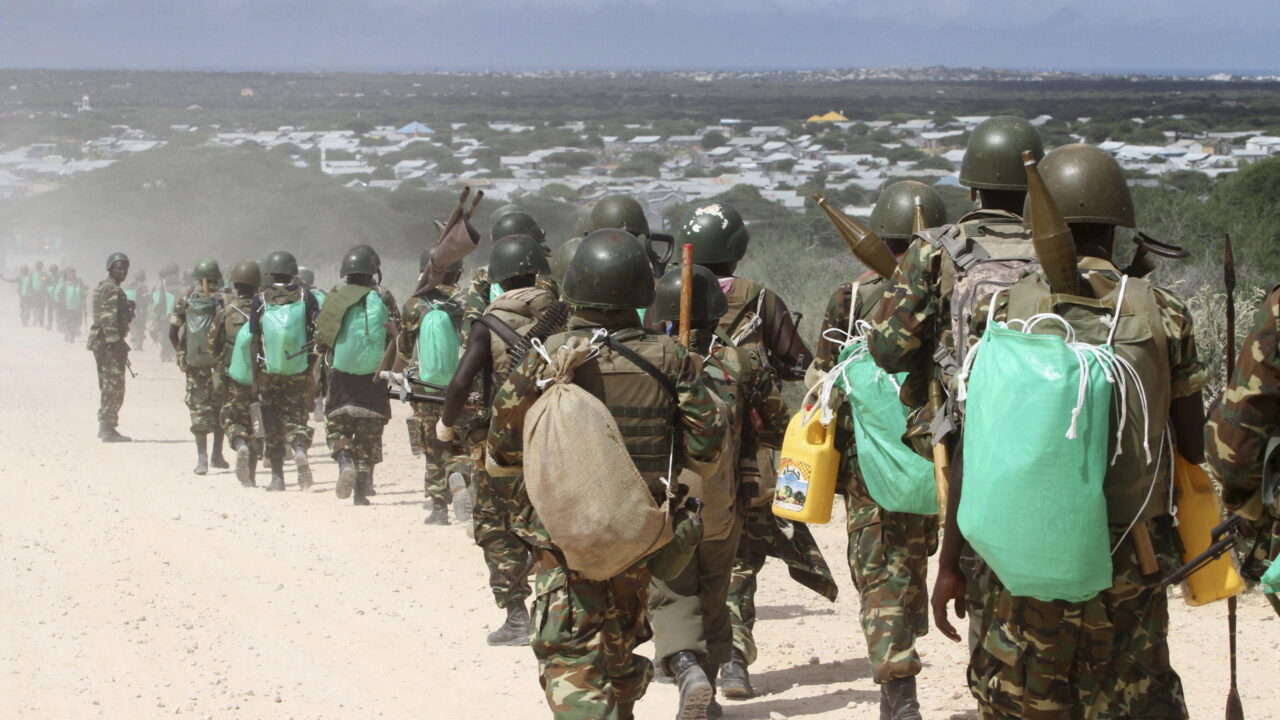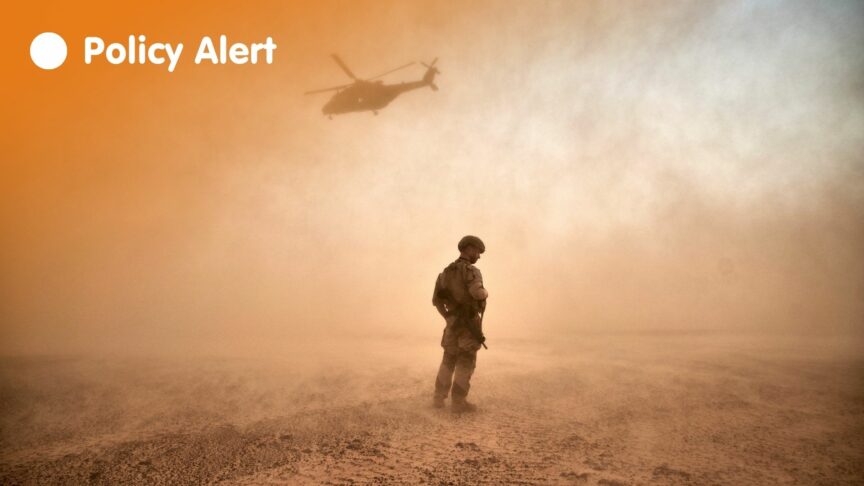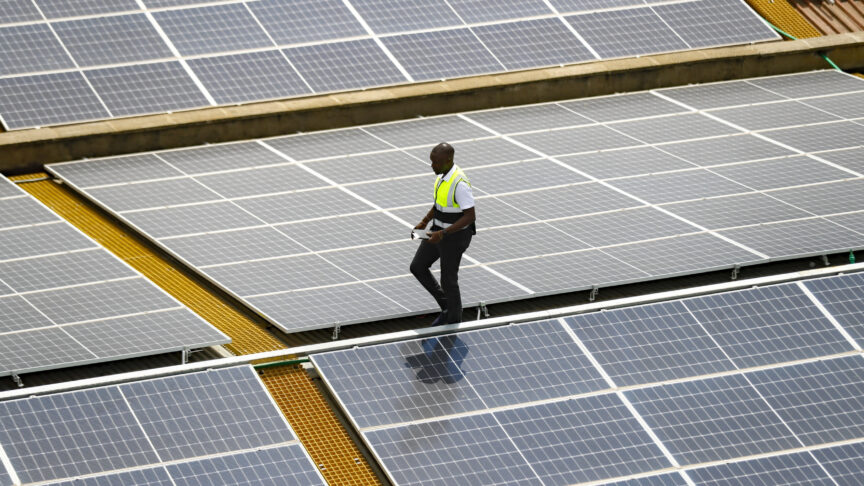Operational hazard: A better way to support peace and security missions in Africa
The UN rightly wishes to devolve responsibility for peace support operations to regional partners. But it should draw up novel ways to achieve this in Africa
The United Nations is bringing to an end its many major multidimensional peace operations in Africa, such as its mission in Sudan. In future, the UN has stated, it wishes to pass responsibility for conflict management to regional organisations. This is something welcomed by the African Union, whose guiding logic is “African solutions for African problems”. Both the UN and the AU support this devolution in principle and African members of the UN Security Council aim to reach an agreement by the end of the year. But money remains the main roadblock to agreement.
The AU is seeking direct financial support from the UN to run peace support operations. The AU already runs its own such missions, such as ATMIS/AMISOM in Somalia, but it relies almost entirely on external financial support from the European Union for this mission. Problematically, the financing it receives from international donors is highly ad hoc and provides inconsistent and unreliable funding streams. In the past, efforts to resolve the issue of UN funding for AU missions failed: the last attempt collapsed, with AU officials describing talks as “a very insulting discussion that does not speak to partnership”.
The UN has decided, in principle, to give the AU access to UN funding (known as “UN-assessed contributions”) to finance AU-run missions. Yet, there is a stumbling block. Giving the AU access to this funding requires approval from the UN Security Council. But UN Security Council permanent members the United States, the United Kingdom, and France are insisting on the AU sourcing 25 per cent of the funding for each operation – which the AU and its members will struggle to meet. They want this because they believe existing operations such as ATMIS/AMISOM represent a case of moral hazard. In their view, the disconnect between the funding and ownership of missions does not sufficiently incentivise the AU to effectively implement their mandate. Indeed, part of the reason for the drawdown of the AU-led Somalia mission is due to the reluctance of the EU to continue to finance a mission that has, it believes, failed to achieve significant results. The rationale is that the AU will be more invested in the results of such missions if it pays 25 per cent of the cost of its own peace support operations.
In the view of permanent UNSC members, the disconnect between the funding and ownership of peace support operations does not sufficiently incentivise the AU to effectively implement their mandate
The need for an agreement has become urgent. Major UN peace operations in Mali and the Democratic Republic of Congo are due to depart. The UN has authorised no new major peace operations in over a decade and is unlikely to meet the growing security challenges on the continent. Conflict in the tri-state area of Mali, Burkina Faso, and Niger has worsened in the last year; the Lake Chad basin continues to be a conflict hotspot; problems in the eastern DRC remain unresolved; full-scale civil war has broken out in Sudan; and al-Shabab’s control of parts of Somalia appears robust. These are all issues that fully funded and well-managed AU missions can help alleviate.
Despite the difficulties, there is also an opportunity to transform the Europe-Africa relationship into a genuine partnership – away from the traditional donor-recipient dynamic. Within the UN, the US in particular is pushing a hard-line position on UN funding for the AU;[1] this gives European states an opportunity to play a useful role in bringing about an agreement. This should be a central part of creating a unique and productive Africa-Europe relationship.
Reaching a deal will require addressing the interests of both parties, and not just focusing on finance. To do so, both the permanent members of the UN Security Council and the AU should pursue a range of measures that resolve the issue of moral hazard. These include: the use of in-kind troop contributions; paying more to place more experienced troops in missions; and benchmarking AU financial contributions to performance.
Three ways to bridge the gap
To reach agreement, the UN and AU will require novel solutions.
One way could be to include African peacekeepers as in-kind contributions. During UN peace operations, troop-contributing countries receive a stipend per soldier; these stipends are typically the most expensive aspect of missions. If AU troop-contributing countries send their troops at their own cost, the financial amount they receive can be counted towards the 25 per cent target. This measure cannot close the gap on its own, but it won support in previous conversations between the two organisations.
Next, the UN and the EU should consider the use of dynamic troop reimbursements and valuation – in other words, giving more money for more highly trained troops, rather than a flat fee regardless of training level. This principle could extend to other, non-financial factors, such as higher valuations for higher quality equipment. This would help close the funding gap and alleviate the issue of moral hazard, as the responsibility and cost of operations would still shift towards the AU. It would also incentivise troop-contributing countries to deploy better trained peacekeepers, thereby increasing the effectiveness of AU peace support operations as a whole.
Finally, a new funding system could vary how much AU peace support operations receive based on their performance. To do this, the UN and the AU could set up an independent expert panel to assess how well the peace support operations are implementing their mandates. The UN already uses the “concept of operations” – clear roadmaps for deliverables – which could be extended to future AU peace support operations and provide a framework for assessing the performance of AU-led missions. This should also have the benefit of ensuring that the mandates for AU peace support operations are more realistic, in contrast to the ‘Christmas tree’ mandates of UN peace operations, which try to do too much. A concept of operations for each mission would also help focus the political strategy of AU operations. Although unwieldy, basing contributions on performance will help bridge the funding gap if the AU is otherwise unable to.
None of these measures will likely work alone. The UN and the AU should use all options at their disposal to find a mutually agreeable solution. There is also the potential for Russia or China to come in with unforeseen demands on negotiations. Still, despite both countries remaining silent on the issue to date, they will be similarly firm on the AU bearing a significant financial burden.[2]
European countries have a key role to play in these negotiations. France and the UK hold permanent seats on the UN Security Council, where they are joined by non-permanent members Albania, Malta, and Switzerland. This means a significant part of the drafting and negotiations will fall to European countries. If – or rather, when – the AU is unable to commit to the 25 per cent target, these countries should use novel solutions to resolve the disagreement. European UN Security Council members, particularly France and the UK, should work to bring along the US, which is likely to be stricter on the financial target than other members. If they do so, European countries will have simultaneously enabled the AU to better tackle security issues and strengthened Africa-Europe relations.
[1] Author interviews with European officials, June 2023, Addis Ababa.
[2] Author interviews with European officials, June 2023, Addis Ababa.
The European Council on Foreign Relations does not take collective positions. ECFR publications only represent the views of their individual authors.



